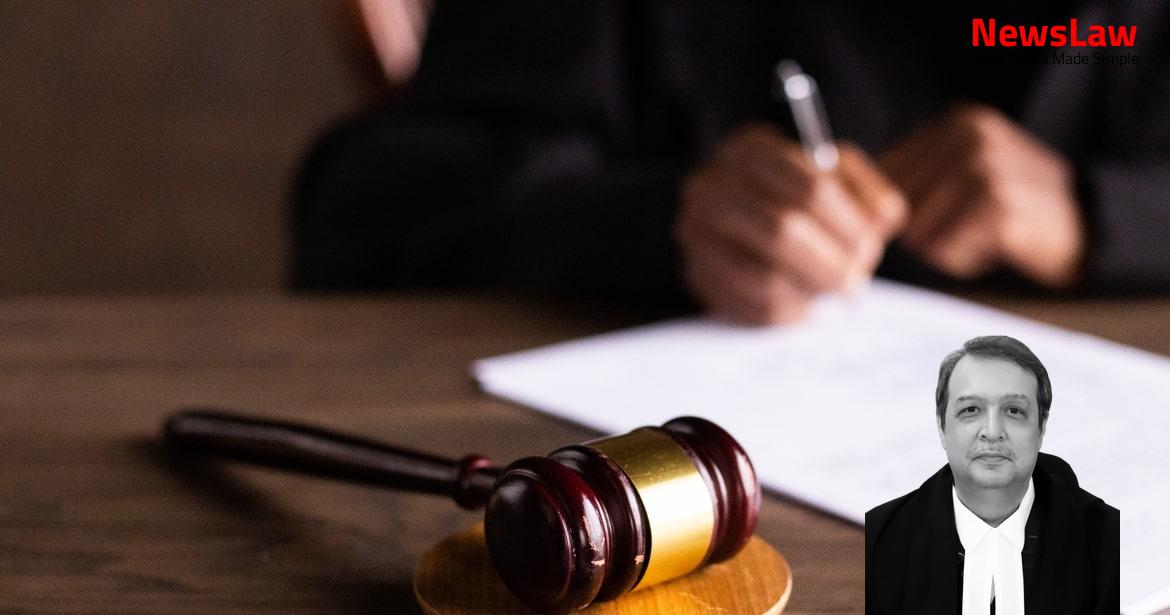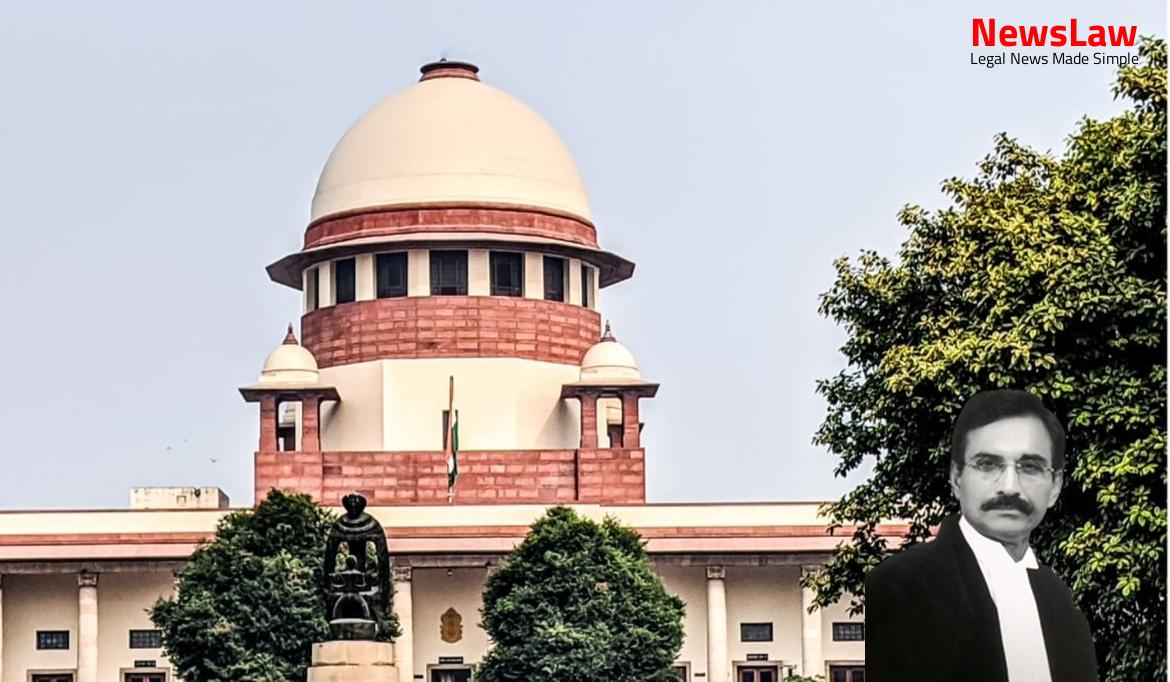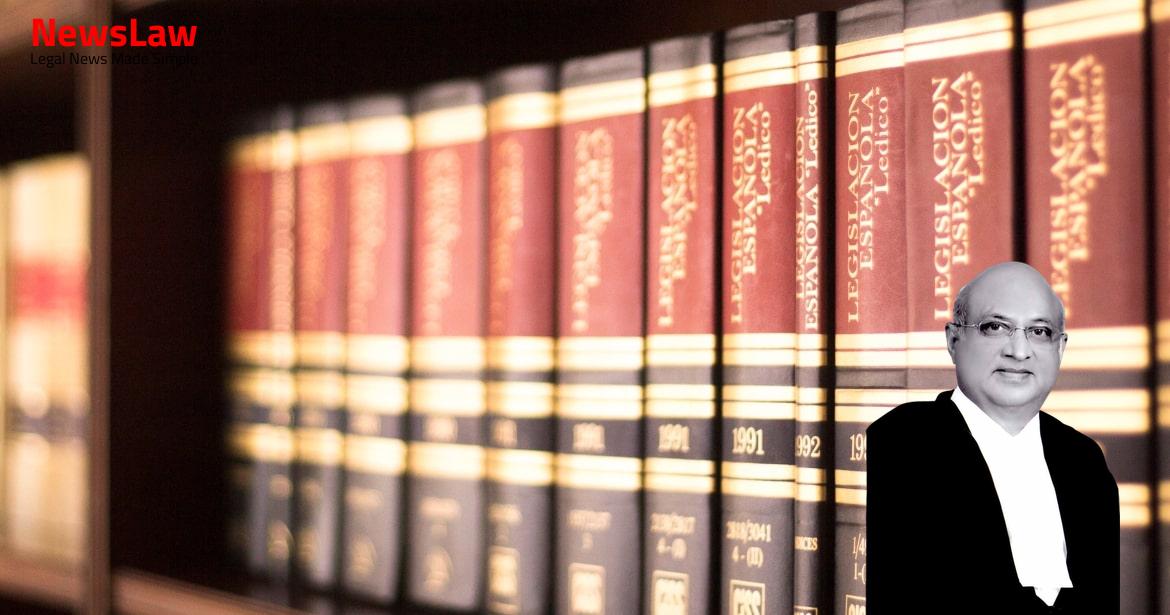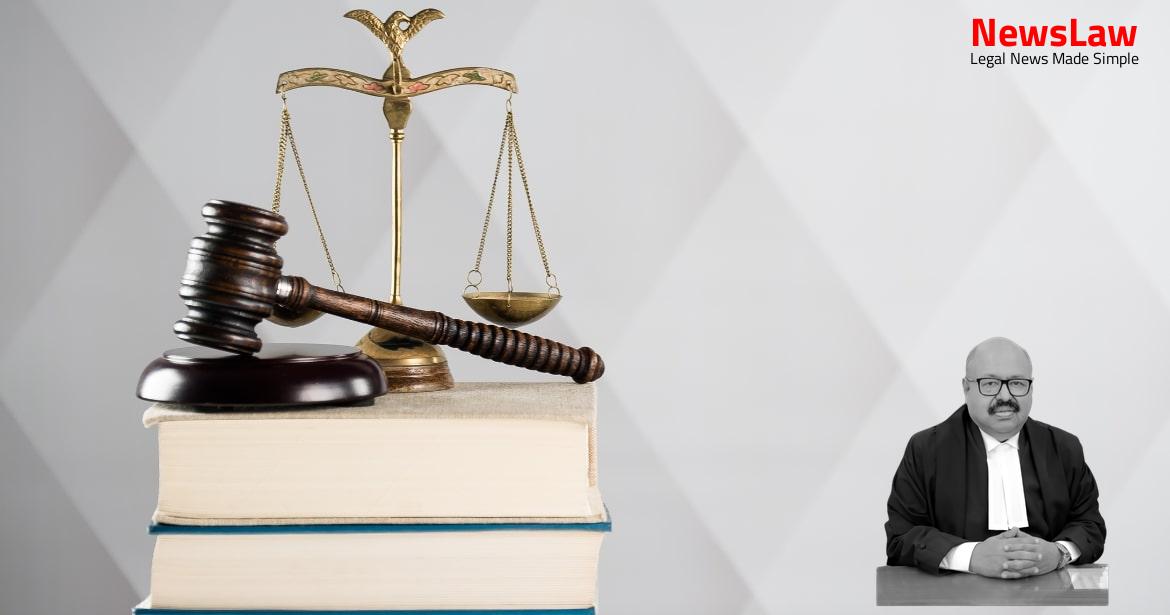The case delves into the intricate legal analysis conducted by the court regarding the limitation aspect in enforcement proceedings. Through a thorough examination of acknowledgment of liability and the application of specific laws, the court’s ruling sheds light on crucial aspects surrounding such legal matters. This summary highlights the importance of understanding the nuanced legal interpretations made by the court in cases of this nature.
Facts
- Fairgrowth Financial Services Ltd (FFSL) is a company registered under the Companies Act 1956.
- A notice dated 16 December 2011 was issued by the first respondent.
- The Execution Application was contested by the appellant on the ground of limitation.
- The appellant paid an amount of Rupees 33 lakh as per offer.
- A communication dated 10 July 2018 stated that waiver of interest decision rests with the Special Court under the Act of 1992.
- Special Court directed the third respondent to pay FFSL Rs 63.86 lakhs with interest in March 2003.
- The appellant communicated in February 2018 offering to pay the principal amount and seek interest waiver.
- FFSL claimed the third respondent executed a promissory note and letter of undertaking for repayment.
- FFSL moved an execution application with the Special Court.
- Assets of FFSL were attached from July 2, 1992.
- Miscellaneous Petition No 15 of 2000 was filed by FFSL against the third respondent for recovery.
- The first respondent is the custodian appointed under the Act of 1992.
- Raviraj Housing Corporation availed a loan from FFSL and was notified as a ‘notified person’ by the custodian.
- The claim of the first respondent is not barred by the law of limitation based on the appellant’s acknowledgments and actions.
- The appellant acknowledged liability in letters addressed to the Custodian and remitted a sum of Rs. 1,00,000.
- The appellant’s argument regarding not being part of the trust when the decree was passed was countered by the first respondent’s counsel.
- The appellant’s letter dated 22 February 2018 was interpreted differently by both parties.
- The decision in L S Synthetics Ltd v. Fairgrowth Financial Services Ltd was cited to support the application of the Act of 1992 over the Act of 1963 for claims pending before the Special Court.
Also Read: Balancing Power and Transparency: Electoral Bonds Struck Down, Disclosure Mandated
Arguments
- Appellant responds to the preliminary objection of maintainability of the appeal by arguing that the Special Court concluded the limitation aspect based on an acknowledgment of liability.
- Counsel Mr. Ahmadi points out that the decision in LS Synthetics has been explained in Fairgrowth Investments Ltd v. Custodian, limiting the observations to Section 11 of the Act of 1992 and proceedings under that provision.
- Mr. Tewari, representing the first respondent, challenges the appeal’s maintainability citing Section 10 of the Act of 1992, which excludes an appeal against an interlocutory order to this Court.
- Learned senior counsel argued that the issue of limitation has been concluded against the appellant.
- The decision of the Special Court cannot be regarded as interlocutory in nature.
Also Read: Recall of Resolution Plan Approval: Legal Analysis
Analysis
- The three-Judge Bench of the Court held that the claim of the notified party is not barred by limitation, as the provisions of the Limitation Act do not apply in this context.
- The Special Judge ruled against the appellant, citing an acknowledgment of liability within the meaning of Section 18 of the Act of 1963.
- The issue of limitation significantly impacts the rights and liabilities of the parties involved.
- The Court rejected the appellant’s argument that the limitation period under Section 4(2) is directory and not mandatory, emphasizing the clear and unqualified nature of the provision.
- The Special Court’s decision that the Custodian is entitled to recover the amount under the Act of 1992 was based on the precedent set by the Court in LS Synthetics Ltd case.
- Section 18 of the Act of 1963 states that acknowledging a liability in writing before the prescribed period for a suit or application results in a fresh period of limitation.
- The Special Court determined that there was an acknowledgment of liability by the appellant in a letter dated 22 February 2018, leading to proceedings initiated by the notified party before the Special Court.
- Section 29(2) of the Limitation Act states that if a special law specifies a different limitation period than the one in the Act of 1963, then Section 3 of the Act of 1963 applies as if the period was in the schedule.
- The Act of 1992 does not prescribe a specific limitation period, so Section 29(2) of the Limitation Act does not apply to it.
- In the case of Fairgrowth Investments Ltd, it was decided that the provisions of the Act of 1963 do not apply to petitions under Section 4(2) of the Act of 1992.
- The Supreme Court in Mohan Lal Magan Lal Thacker v. State of Gujarat distinguished between ‘final order’ and ‘interlocutory order’, defining the latter as temporary orders that do not determine important rights or liabilities.
- Directions for disclosure of assets and other consequential directions not interfered with in this appeal.
- Appellant granted four weeks to file disclosure of assets, with the right to urge submissions in the execution application.
- Observations in impugned order were for the purpose of issuing directions for disclosure of assets.
- Custodian not precluded from arguing that the Act of 1963 does not apply to the Execution Application for enforcement of the decree.
Decision
- The appellant is directed to make a disclosure of assets within four weeks
- Application for arrest will not be pursued until the Execution Application is decided
- Special Judge requested to dispose of the Execution Application within two months of receiving a certified copy of the order
Case Title: MANJIT SINGH SODHI Vs. THE CUSTODIAN (2022 INSC 792)
Case Number: C.A. No.-005126-005126 / 2022



